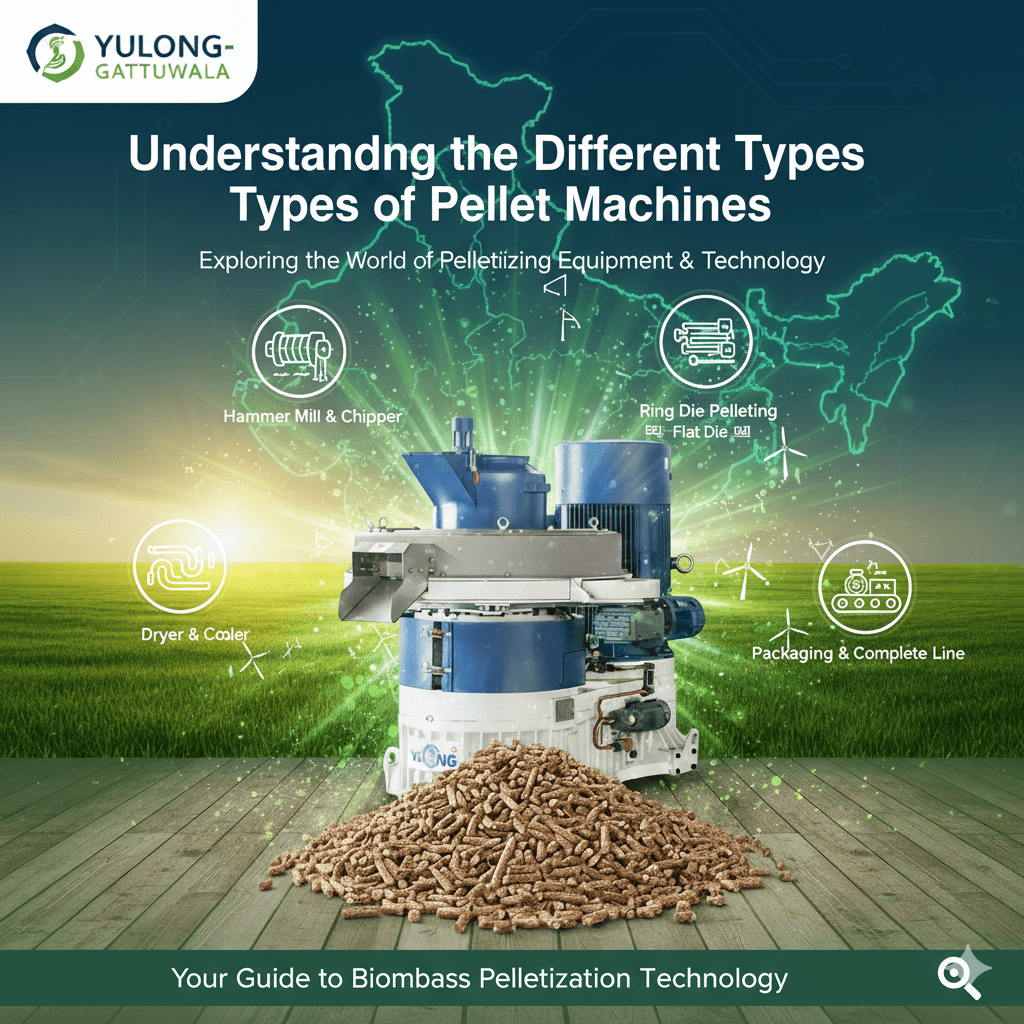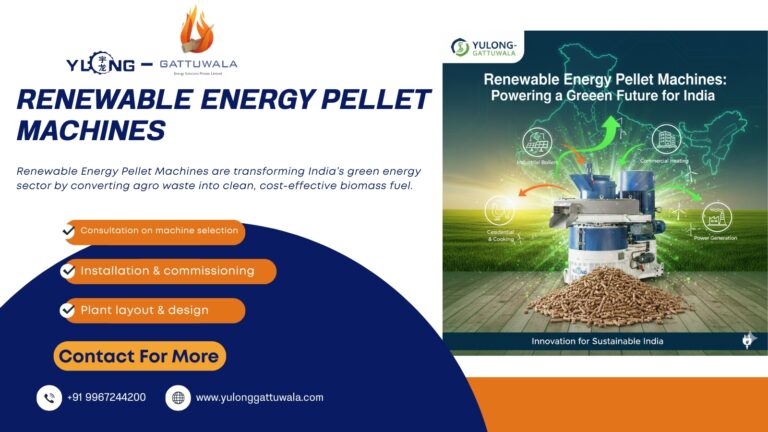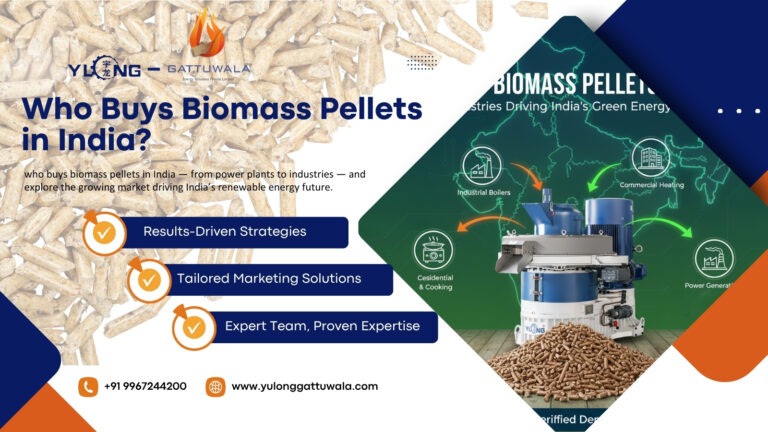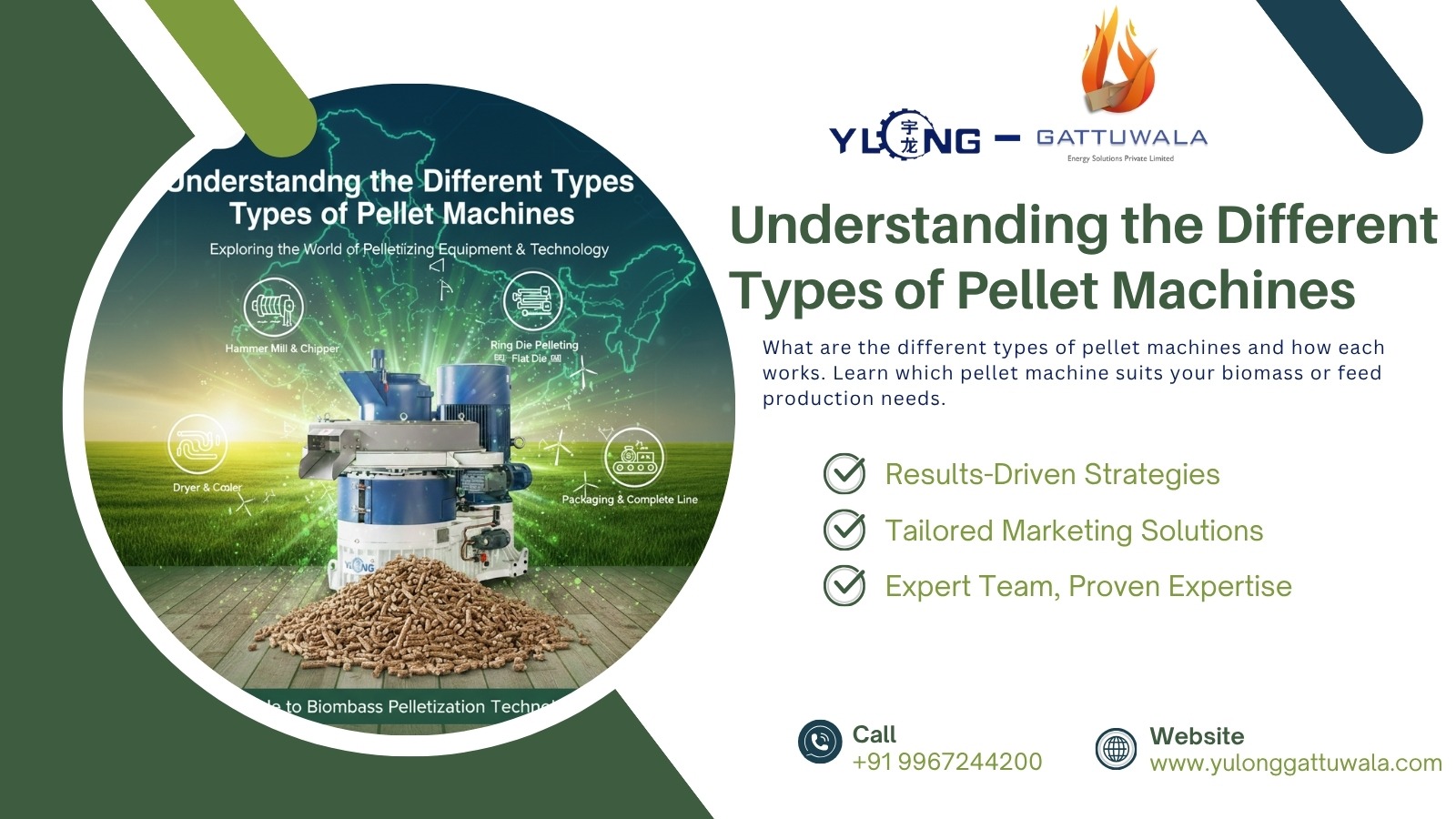- November 13, 2025

In recent years, pellet machines have gained tremendous popularity in the fields of renewable energy and agriculture. From producing biomass fuel to animal feed, these machines play a vital role in transforming raw materials into efficient, eco-friendly pellets. However, choosing the right type of pellet machine depends on your production scale, raw materials, and application.
In this article, we’ll explore the different types of pellet machines, their working principles, and how to choose the best one for your business.
The flat die pellet machine is one of the most widely used and cost-effective pelletizers in the market. It’s mainly suitable for small-scale production, startups, and farmers who wish to produce pellets for personal or small commercial use.
Key Features:
• Compact design and easy operation
• Ideal for small workshops and farms
• Affordable maintenance and low power consumption
• Suitable for sawdust, straw, rice husk, and animal feed
Applications:
• Feed Pellet Production: Poultry, cattle, and aquaculture feed
• Biomass Fuel Production: For domestic heating and small biomass boilers
This machine uses a flat die with holes through which the raw material is compressed by rollers to form dense pellets. It’s an excellent choice for beginners entering the biomass or feed industry.
The ring die pellet machine is designed for large-scale industrial production. It is capable of continuous operation, producing high-density and uniform pellets suitable for export and large biomass plants.
Key Features:
• High output and durability
• Energy-efficient with advanced compression system
• Low wear and tear on rollers and die
• Continuous automatic operation
Applications:
• Biomass Pellet Plants
• Commercial Feed Manufacturing
• Power Generation Units (Biomass-based)
Unlike flat die machines, ring die models use a rotating ring-shaped die where material passes through radial holes and is pressed by rollers. This results in better quality pellets with higher density and consistent size.
A biomass pellet machine is specifically designed to convert various agricultural residues into renewable energy pellets. Common raw materials include wood chips, sawdust, corn stalk, sugarcane bagasse, and palm husk.
Why Biomass Pellet Machines Are Popular:
• Converts waste into energy
• Reduces carbon footprint
• Provides an alternative to coal and LPG
• Generates high calorific value pellets
These machines are used in biomass energy plants, industrial boilers, and home heating systems, supporting India’s vision for sustainable and green energy.
A feed pellet machine is designed for livestock feed production. It helps farmers prepare nutritious and digestible feed in pellet form, reducing wastage and improving animal growth.
Applications:
• Poultry feed (chicken, duck, quail)
• Cattle feed (cow, goat, buffalo)
• Aquatic feed (fish and shrimp)
These machines can use both flat die and ring die mechanisms, depending on the production capacity required.
Feature | Flat Die | Ring Die |
Production Capacity | Low to Medium | Medium to High |
Maintenance Cost | Low | Moderate |
Pellet Quality | Good | Excellent |
Suitable For | Small business, farms | Industrial use |
Your choice depends on budget, production needs, and raw material availability. For startups, flat die models are cost-effective. For industrial pellet plants, ring die machines offer better long-term value.
Understanding the different types of pellet machines helps you make the right investment for your business. Whether you aim to produce biomass fuel or animal feed, choosing between flat die and ring die pellet machines can define your efficiency and output quality.
At Yulong – Gattuwala, we offer advanced, energy-efficient, and durable pellet machines designed for Indian conditions — helping industries and farmers convert waste into wealth through sustainable bioenergy solutions.
📞 Interested in setting up a biomass pellet plant in India? Contact Gattuwala Energy for expert consultation, equipment, and government subsidy support.

Renewable Energy Pellet Machines

Who Buys Biomass Pellets in India?


